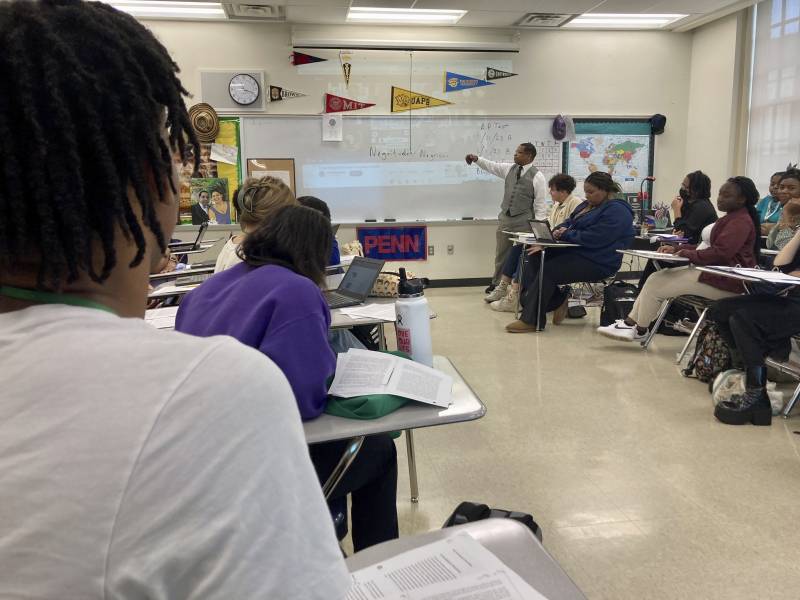Several sources that were required course content in the framework released in February were listed as optional in the latest revision, including an interactive map of the 1919 Red Summer riots by white supremacists, a speech by Frederick Douglass and writings between Malcolm X and Maya Angelou in Ghana.
In April, the College Board had said it would revise the course after the Florida controversy, promising an “ unflinching encounter with the facts,” an announcement that some scholars interpreted as an admission that it had watered down the course. However, the nonprofit did not add back every topic downgraded in last winter’s update. The Black Lives Matter movement is still not included in the final AP exam, although it is mentioned along with other grassroots organizing examples and listed among sample topics schools could choose from for further discussion.
“There is a lot of content to cover, and that is because students have not been exposed to this. So it feels overwhelming at times that there’s a lot that they don’t know,” said Nelva Williamson, who is a member of the course’s development committee and who teaches one pilot class of AP African American Studies to 31 students at Young Women’s College Preparatory Academy in Houston.
Williamson said those who teach the course are asked each month what is going well and what needs work. “But then there’s also this piece: ‘What would you like to see?’” Williamson, who has been teaching for more than 40 years, said of piloting the AP course. “The updates are based on teacher recommendations, and changes coincide with the latest scholarship and resources used at the collegiate level.”
The College Board offers AP courses across the academic spectrum, including math, science, social studies, foreign languages and fine arts. The courses are optional and taught at a college level. Students who score high enough on the final exam usually can earn course credit at their university.
The AP African American Studies course was initially piloted in 60 schools in 2022 and was expanded this academic year to about 700 schools and about 13,000 students.
The revised framework “defines the course content, what students will see on the AP exam, and represents more than three years of rigorous development by nearly 300 African American Studies scholars, high school AP teachers and experts within the AP Program,” the College Board said in a statement.
Next year, the AP course will be available to all schools in the U.S. But it remains unclear how many will actually offer it.
“We are encouraged by the groundswell of interest in the class,” said Holly Stepp, spokesperson for the College Board.

